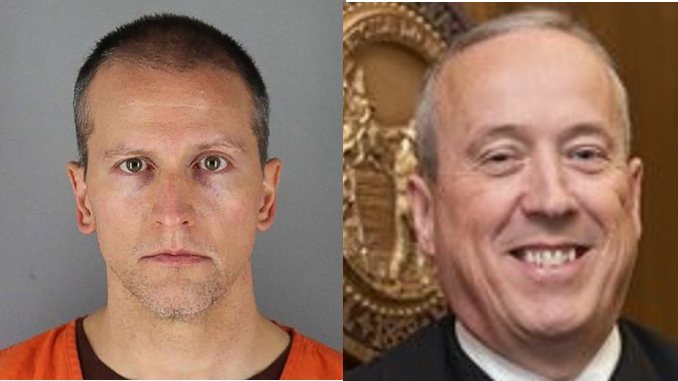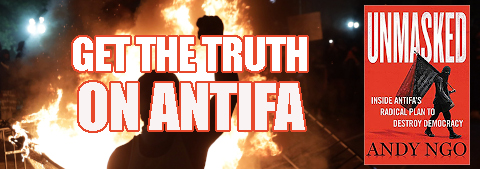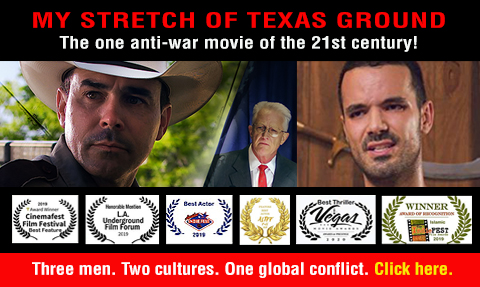
By Donald Jeffries
Roger Stone was targeted for a political prosecution. That’s why a SWAT team conducted a highly publicized pre-dawn raid on his home. An activist judge openly antagonistic to his politics, and a lead juror who posted anti-Trump and anti-Stone opinions on social media during the trial eliminated any chance he had at impartial justice. And very few seemed to care.
Considering the death of George Floyd precipitated many times violent riots all across the country, was it actually possible for the officer charged with murdering him, Derek Chauvin, to get an unbiased jury of his peers? A jury predictably found Chauvin guilty on all charges, at least temporarily quelling the unrest that was sure to erupt again if the verdict had been less severe. Regardless of how one viewed Floyd’s death, did Chauvin really receive a fair trial? Incredibly, the family of Floyd was awarded a $27 million settlement from the city of Minneapolis, at the same time jury selection was ongoing for Chauvin’s upcoming trial. Such an award certainly tainted Chauvin as guilty in the minds of any potential jurors.
Richard Nixon rightly was criticized by civil libertarians of the time for publicly proclaiming Charles Manson guilty prior to his trial. In a similar vein, Joe Biden declared that “I’m praying that the [Chauvin] verdict is the right verdict, which I think, it’s overwhelming in my view,” while the jury was still deliberating. Although Biden tried to defend his comments by saying, “I wouldn’t say that unless the jury was sequestered now, not hearing me say that,” Sen. Ted Cruz was outraged. Cruz tweeted, “Joe Biden decides that Maxine Waters shouldn’t be the only politician foolishly providing grounds for a mistrial or a possible basis on appeal to challenge any guilty conviction.” Waters had famously egged on demonstrators by declaring, “We’ve got to get more confrontational.” Judge Peter Cahill, who presided over the Chauvin trial, had reacted angrily to Waters’s remarks, stating, “I wish elected officials would stop talking about this case, especially in a manner that’s disrespectful to the rule of law and to the judicial branch and our function.”
Brandon Mitchell, one of the jurors in the Chauvin trial, recently created even more controversy. Mitchell had told Cahill, during the jury selection process, that he had no prior knowledge of the Floyd case. In fact, Mitchell had been photographed at a protest last August, wearing a shirt reading “Get your knee off our necks” and “BLM.” After the trial was over, Mitchell admitted that he’d wanted to serve on a jury to pursue an agenda. In an April 27 radio interview, Mitchell commented, “I mean it’s important if we wanna see some change, we wanna see some things going different, we gotta into these avenues, get into these rooms to try to spark some change. Jury duty is one of those things. Jury duty. Voting. All of those things we gotta do.” Even when confronted with the photo that contradicted his claims of impartiality, Mitchell ludicrously claimed, “I think I was being extremely honest during the jury selection process. I gave my views on everything—on the case, on Black Lives Matter.”
Chauvin’s legal team has filed a motion in a Minneapolis court, requesting a new trial on multiple grounds, including jury misconduct. The motion cited “abuse of discretion that deprived the defendant of a fair trial; prosecutorial and jury misconduct; errors of law at trial; and a verdict that is contrary to law.” Referring to the obvious threat of violence from a not guilty verdict, his attorneys noted, “The jury committed misconduct, felt threatened or intimidated, felt race-based pressure during the proceedings, and/or failed to adhere to instructions during deliberations, in violation of Mr. Chauvin’s constitutional rights to due process and a fair trial.” Attorney Eric Nelson also alleged there had been “prejudicial publicity regarding the trial during the proceedings, as well as jury intimidation and potential fear of retribution among jurors.”
The motion also charged that the court had “abused its discretion and violated Mr. Chauvin’s rights under the Confrontation Clause” when it “failed to order” key witness Morries Hall to testify, or allow his statements to police to be admitted into evidence. Hall was riding in a car with Floyd the day he died. Cahill had quashed a subpoena compelling him to testify. Not surprisingly, John Stiles, Minnesota Attorney General Keith Ellison’s deputy chief of staff, responded by saying, “The court has already rejected many of these arguments and the state will vigorously op- pose them.” Ellison has asked Cahill to issue the maximum sentence for Chauvin.
Although the odds seem against it, considering the political ramifications, even Newsweek has cited Cahill’s failure to sequester the jury as potentially causing the verdict to be overturned.




Oh Mr. Jeffires,
If only you knew the travesty that was taking in place on June 15th, 2021, in Nashville TN, in Federal court.